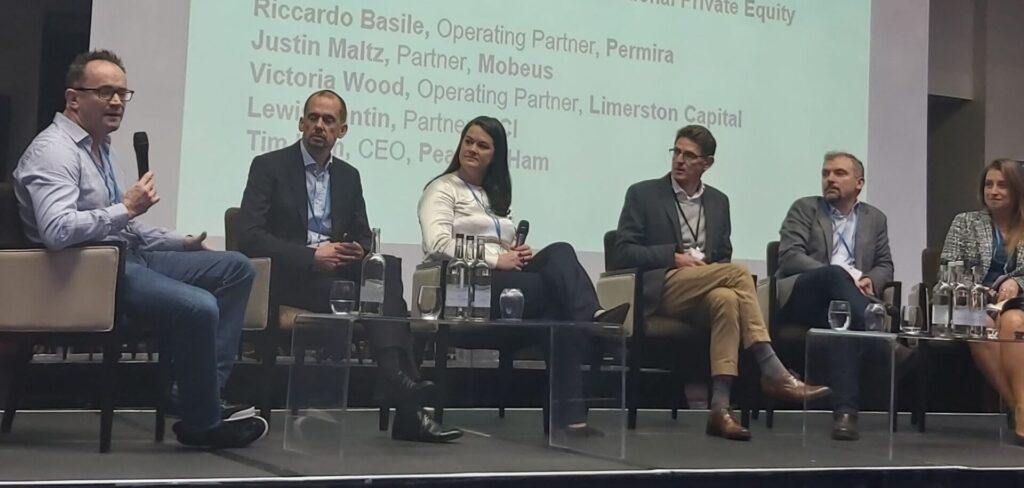
Mia Smith and Lewis Bantin from ECI’s Commercial Team recently joined Real Deals’ Value Creation conference to discuss drivers of value creation in the current market and why ESG is important for attracting and retaining talent.
Value creation in a low growth / high cost environment
Q: What are you most focussed on from a value creation perspective in the current low growth / high cost environment?
Lewis: When we invest, we look for businesses that have a clear competitive advantage, a strong growth proposition, and a resilient business model. So, while the macro environment is tougher, we’re investing in speed boats not super tankers. That means we can support nimble businesses who are often superseding the broader trends in the economy. Moneypenny for example is exactly that, tapping into exciting growth trends around virtual customer experience, and we’re supporting them to invest in new products and features, such as using ChatGPT to help with message summaries, quality control and sentiment analysis.
Q: How much do you focus on ROI when making investment into portfolio companies? Or do you focus more on multiple return on investment vs direct EBITDA return / conversion?
Lewis: We look at the ROI of value creation initiatives, but we also look at the long-term strategic benefits and the potential impact on our valuation multiple at exit. We are not solely focused on short-term EBITDA or cash generation, but rather on long-term growth and value creation. For example, at portfolio company, CSL, we recently supported them to help launch an innovative new product, that will help develop secure and reliable mobile network connectivity. This is not a short-term investment, but even if we don’t see the short-term benefits in terms of cash, we believe it will significantly increase market size, offer differentiation and deliver truly substantial long-term growth. That will have a direct impact on our valuation multiple in a few years’ time. Ensuring success for the next investment is an important part of being a growth investor.
The impact of culture on value creation
Q: How important is culture and people dynamics for value creation?
Lewis: Culture and people dynamics are extremely important for value creation. We believe that the outperformance of any business depends on the quality and motivation of its people; we have tracked it in our winners and the analysis is clear. That means we take a very people-centric approach at ECI, investing in the cultures of the companies we back. That might be through supporting management teams to deliver their values, internal comms, DEI strategy, or building out their employee engagement data and initiatives. We do these things because we know it works and has a direct impact on growth and valuation.
The importance of ESG and purpose
Q: Why is ESG important, and in particular to younger generations?
Mia: There is no silver bullet on ESG, so what is important will vary business by business, and with what they choose to tackle. But generally, we see this as something that more companies are being asked about by their employees, their customers, their suppliers – there are a lot of interested parties. For younger generations, this is amplified. They want to work for and buy from businesses that are authentic. They are better informed around ESG than previous generations, they want more transparency and they want to feel a connection between the work they do and the good it produces in the world.
Q: How can companies put themselves on the front foot when it comes to ensuring their business appeals to people who think ESG is important?
Mia: It’s something we think about a lot with our portfolio, in terms of how they can improve their ESG performance and communicate that story for stakeholders. Often it is the articulation of purpose that can have the most impact, rather than E vs S or similar. Once you understand how your company has a positive or negative impact and you’re all aligned behind purpose, you can prioritise your actions accordingly. Another thing I’d say is that commitments aren’t good enough anymore – businesses need to be able to measure the impact they’re having and be able to evidence it. Companies can’t do everything, so it is about understanding what initiatives will build resilience and really add value to your company. That’s why ESG needs to be understood as value creation and not just as diligence.

